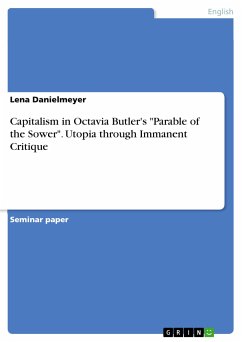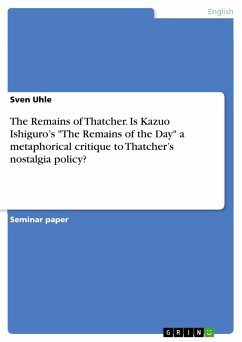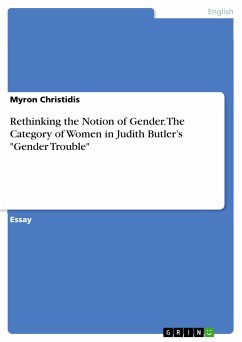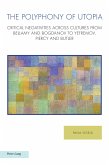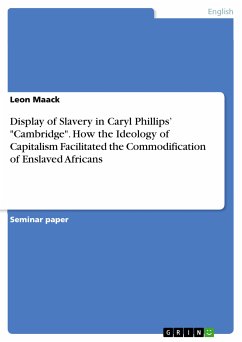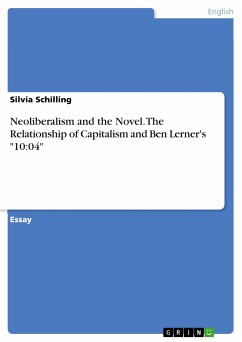Seminar paper from the year 2020 in the subject English Language and Literature Studies - Literature, grade: 1,0, University of Osnabrück, language: English, abstract: This paper will argue that in "Parable of the Sower" by Octavia Butler creates utopian hope by realistically building a dystopian vision which immanently criticises the present. For reasons of brevity, this will be elucidated mainly using the example of capitalism. While an abundance of other issues taken up by the novel, like climate change, democracy, racism or violence, would certainly serve as productive foci of analysis as well, capitalism will be the centre of attention because it is at the core of the apocalyptic circumstances portrayed in the novel. It also constitutes an intersection with most of the other issues named above, making capitalism a suitable starting point. Firstly, a short overview will be given on contemporary interpretations of the state of utopia, pointing out capitalism as a main factor in the changing of utopianism. Among others, Krishan Kumar's "The Ends of Utopia", Jerry Phillips's "Utopia and Catastrophe in Octavia Butler's Parable of the Sower" and Darko Suvin's Metamorphoses of Science Fiction will be consulted. Realism, cognition, and estrangement will be pointed out as main tools of offering immanent critique and, in extension, utopian hope. Secondly, the production of immanent critique in Parable of the Sower will be analysed with the help of Mathias Nilges's paper on "The Realism of Speculation". Mike Davis's City of Quartz will serve to illustrate the realism in Butler's vision of future Los Angeles. The second example will examine the company town Olivar. Briefly consulting Rottinghaus', Pluretti's and Sutko's discursive paper "The End of Material Scarcity", the effectiveness of this immanent critique will be discussed. Lastly, this paper will seek to show how immanent critique allows for the creation of utopian hope, pointing towards the transformative value of utopian literature presented in Carl Freedman's Critical Theory and Science Fiction. This paper will, because of its limited length, not be able to further investigate critiques of capitalism in any other context than that of Butler's novel. Also, it will not be analysing the portrayal of capitalism as essentially nostalgic and conservative, making it the opposite of the utopian vision of adaptation and progress that it is contrasted with. This paper will not delve deeper into other interesting aspects of the generation of utopian hope, like narration
Dieser Download kann aus rechtlichen Gründen nur mit Rechnungsadresse in A, B, BG, CY, CZ, D, DK, EW, E, FIN, F, GR, HR, H, IRL, I, LT, L, LR, M, NL, PL, P, R, S, SLO, SK ausgeliefert werden.
Hinweis: Dieser Artikel kann nur an eine deutsche Lieferadresse ausgeliefert werden.

